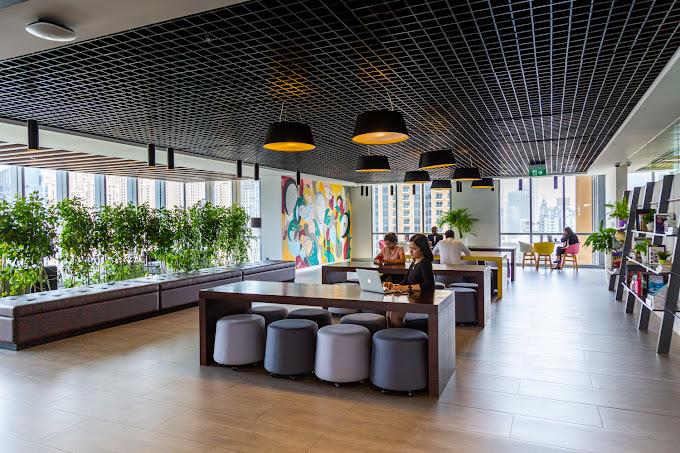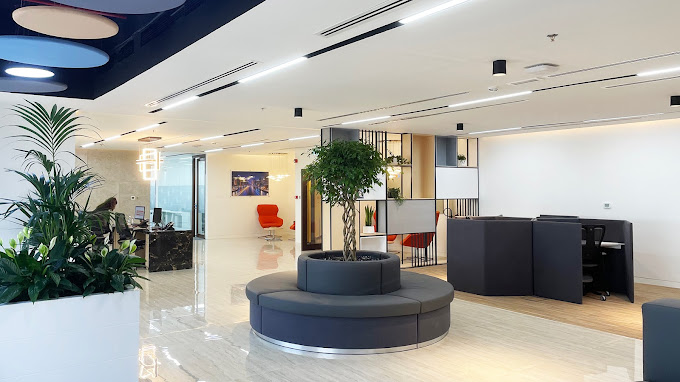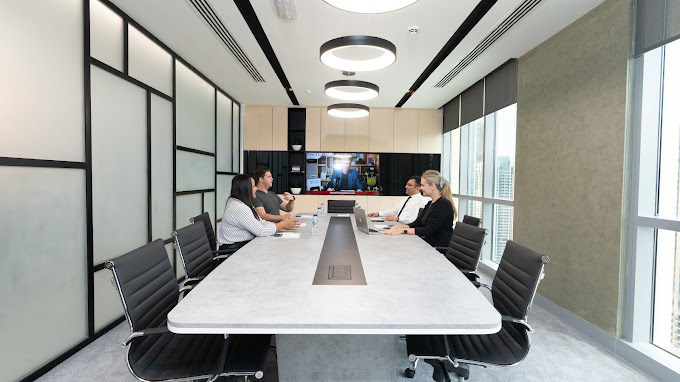Workplace culture speaks volumes about how organisations conduct business and what they expect from their employees. It reflects the collective beliefs, attitudes, and processes that guide how individuals within an organisation behave and interact with one another and with their customers or clients.
Organisations that take the time to develop and improve their workplace culture cultivate a conducive environment where employees can thrive and contribute to the long-term success of the business. At myOffice, we help businesses of all scales create a healthy workplace culture that champions individual well-being and connects employees to the organisation’s overall goals.
This article outlines the importance and indicators of a positive workplace culture. Plus, eight ideas to improve workplace culture.
The Importance of Workplace Culture
Workplace culture has a huge impact on the kind of employees organisations attract and retain. During the hiring process, managers and recruiters assess if an applicant’s personal vision and skills match the responsibilities of a role and align with the organisation’s workplace culture. In the same way, workplace culture influences an applicant’s decision to accept a job offer, and fuels an employee’s commitment to their jobs.
Organisations with a positive workplace culture nurture happy employees who find meaning, purpose, and satisfaction in their jobs and roles. Workplace culture promotes a sense of belonging that drives employee engagement, which boosts team dynamics and productivity.

Indicators of a Positive Workplace Culture
Workplace culture should be tailored to the demands of a business and evolve with the changing professional landscape. Every business and organisation is different, but there are universal qualities that indicate a positive workplace culture.
-
Mutual Trust and Respect
A positive workplace culture upholds mutual trust and respect for people and their contributions to the organisation. It’s about respecting that every position and task is valuable to an organisation and trusting that employees are equipped to deliver. When there is mutual trust and respect, employees feel psychological safety, enabling them to speak up, share their opinions, and take accountability for their ideas and mistakes without fear of punishment.
-
Quality of Leadership
Workplace culture is implemented by managers and followed by employees. The quality of leadership is the manager’s ability to lead by example and support their teams. Leaders in an organisation need to act and speak in accordance with the organisation’s core values. For instance, their compassion and empathy for employees enable them to establish healthy boundaries that give way to work-life balance.
-
Strong and Open Communication
Strong and open communication fosters a positive workplace culture where employees can collaborate and solve problems harmoniously and efficiently. It is having a standard for how and where teams pitch ideas, give and receive feedback, and access information. Setbacks due to misalignment and conflict can be minimised when all members within an organisation are encouraged to communicate effectively.
-
Learning Opportunities and Benefits
Organisations that offer employees growth and learning opportunities, plus a substantial benefit package, are good indicators of a healthy workplace culture. This shows that the organisation cares for its employees and is willing to invest in their personal and professional development. Employees who feel valued are more motivated to do their best work.
-
Community
Organisations with a positive workplace culture make employees feel welcomed, acknowledged, included, and supported, addressing the human need for community and connection.

8 Ideas to Improve Workplace Culture
-
Reinforce Core Values
Core values should serve as the organisation’s identity and the basis of workplace culture. Organisational core values are the governing principles that define policies and processes for business operations and interactions, and shape employee experiences. Hence, these values must be easy to remember, actionable, and visible at every level within an organisation, from management to new hires.
-
Set Clear Goals and Objectives
Setting clear goals and breaking them down into more manageable objectives strengthens communication within the organisation. In this regard, ideas to improve workplace culture involve establishing tangible KPIs or quotas for every individual, team, and department. Outline the objectives by defining each team member’s tasks and responsibilities along with the ideal timeline for delivery. Be sure to check in once in a while to clarify and adjust expectations accordingly.
-
Instil Transparency
To build trust into the workplace culture, transparency must be instilled in all levels within an organisation. It is important for organisations to have modern collaboration tools and secure IT infrastructure to facilitate top-down communication. Share both the successes and challenges of the organisation through company-wide emails, or timely updates at town hall meetings. Other ideas to improve workplace culture include scheduling regular one-on-ones and team check-in meetings, and promoting an open-door policy.
-
Support Diversity and Improve Inclusivity
Diversity in the workforce drives innovation, fuels problem-solving, and reduces bias. There is even a study that proves that diverse teams enhance decision-making 87% of the time. Fostering an inclusive workplace culture that embraces diversity starts in the hiring process. Welcome applicants from different backgrounds, cultures, and experiences. Also, initiate opportunities for employees to connect, whether in-person or remote. It doesn’t always have to be work-related-it can be a block movie or a virtual game night.
-
Boost Employee Morale and Engagement
Ideas to improve workplace culture will always have the employees’ best interests in mind, as well as the organisation. To boost employee morale and engagement, organise corporate events that encourage them to network and collaborate. Make them feel that you care about them on a personal level–not just professionally. Offer fair and competitive compensation so employees can live comfortably. Strive to give meaning and security to their jobs by presenting them with career advancement or professional development opportunities within the company.
-
Recognise Excellent Contributions
Recognising the excellent contributions of employees cultivates an uplifting workplace culture. It encourages friendly competition, motivating employees to do their best work which bolsters performance and productivity. Moreover, it makes employees feel valued and appreciated, which increases talent retention by 53%. Management can instigate a recognition program that incentivises great work, like an opportunity to travel, a bonus, or a commission. To instil camaraderie in teams, you can opt for peer-to-peer recognition, where they vote for the most deserving team member to win a cash prize or voucher.
-
Encourage and Acknowledge Feedback
Encouraging and acknowledging feedback enhances workplace culture by demonstrating the organisation’s commitment to continuous learning and improvement. Encourage managers to give team members regular feedback through one-on-ones or peer reviews. Doing so will help employees identify and act on points for improvement, strengthening team dynamics as members learn to build on each other’s strengths and weaknesses. In the same way, managers must also be receptive to feedback about their leadership and the organisation. Respectful employee feedback gives management and the organisation a chance to address pain points and reduce the cost of turnover.
-
Offer Flexible Working Arrangements
Offering flexible working arrangements manifests a workplace culture that values mutual trust and respect. Nobody likes being micromanaged. Flexibility, in terms of schedule, location, and work style, enhances autonomy and supports positive work experiences. Employees feel more motivated and satisfied when they feel the organisations trusts them to deliver good work. Organisations can arrange for flexible coworking spaces or meeting rooms with ergonomic office setups, break areas, and other amenities to inspire team collaboration. They can also allow remote setups for independent work.
Takeaways on Ideas to Improve Workplace Culture
Workplace culture reflects the collective beliefs, attitudes, and processes that guide how individuals within an organisation behave and interact with one another and with their customers or clients. It is important because it influences the kind of employees organisations attract and retain.
All the ideas to improve workplace culture mentioned above champion employee well-being and job satisfaction, which bolsters their productivity and performance, ultimately benefitting your organisation’s bottom line.
If you’re looking for flexible office spaces for rent in Dubai business centers, please get in touch with us at myOffice for a free tour or consultation. Our range of serviced offices includes meeting rooms, coworking spaces, and virtual offices, all of which support a dynamic and positive workplace culture where organisations and employees can thrive. What’s more, you can choose from our prestigious locations in Marina Plaza and Boulevard Plaza.

Leave a Reply